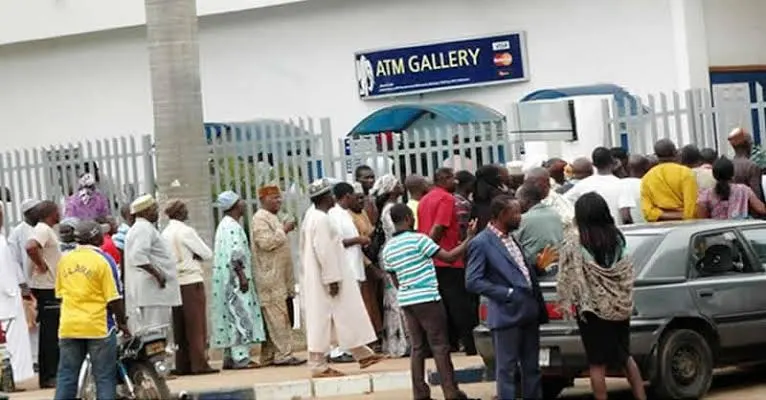As 2025 begins, many Nigerians face mounting frustrations over cash scarcity, with banks’ Automated Teller Machines (ATMs) across most places in Lagos failing to dispense money. Inside bank branches on the 31st of December, customers are either turned away or limited to withdrawing between ₦10,000 and ₦20,000, further compounding the crisis.
This is despite warnings from the Central Bank of Nigeria (CBN) to penalize banks that fail to keep ATMs operational. The shortage has left Nigerians dependent on Point of Sales (PoS) operators, who have hiked their fees to exploit the situation.
PoS operators have drastically increased transaction charges, with customers now paying ₦500 to withdraw ₦5,000—a significant jump from the usual ₦100 or ₦200. Larger withdrawals attract even steeper fees. For many Nigerians, who rely on cash for transportation and daily expenses, this situation has become untenable.

While no official explanation has been provided, stakeholders speculate the crisis stems from several factors, including cash hoarding ahead of the festive season and CBN policies promoting digital payments.
An anonymous source from a tier-2 bank attributed the scarcity to reduced cash disbursements from the CBN and lower deposit volumes from customers.
The situation has also sparked allegations of collusion between PoS operators and banks, though many operators deny these claims. Instead, they describe alternative methods of sourcing cash, such as partnering with market traders and shop owners.
In September 2024, the CBN vowed to sanction banks failing to ensure ATM availability. Governor Yemi Cardoso emphasized the importance of sufficient cash circulation and promised a monitoring system to enforce compliance. However, as ATMs across Lagos remain empty, no reports of sanctions against non-compliant banks have emerged.
The ongoing cash crunch highlights the pressing need for accountability and effective policy implementation to address the crisis and alleviate the financial burden on ordinary Nigerians.

